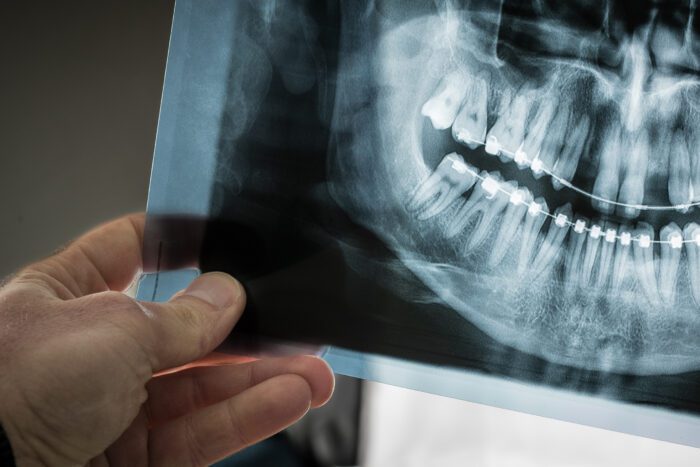Wisdom teeth usually erupt between the ages of 17-25, which is why they’re referred to as “wisdom” teeth. clinically they are referred to as “third molars” because they are very similar to the first two sets of molars that develop in childhood and adolescence.
Wisdom teeth grow in the rear of the mouth after the rest of the dental structure is in place. Some patients need them removed, but some do not. Buford, GA dentist office Lanier Family and Cosmetic Dentistry offers wisdom teeth removal for patients who want to prevent crooked teeth or infection. If you or your child require wisdom tooth extraction treatment, call (678) 359-4707 or request a consultation with one of our dentists on our website.
Learn more about wisdom teeth and whether removing them is best for you below.

Why Remove Wisdom Teeth?
Although not everyone may need their wisdom teeth removed, we recommend removal if they cause oral health problems, infection, or pain. Some patients do not have any issues and have their wisdom teeth for the rest of their lives. There are various reasons why patients require wisdom tooth removal, which includes:
Impacted wisdom teeth: When the wisdom teeth are blocked by existing teeth and cannot come out, they are impacted. While some patients experience pain or discomfort when this happens, others do not realize they have impacted wisdom teeth until we discover it on an x-ray. It is important to schedule biannual dental visits so that we can see when wisdom teeth are forming.
Pericoronitis: When wisdom teeth begin erupting out of the gums, a flap of gum tissue can develop. This tissue easily traps leftover food particles and oral bacteria. An infection, called pericoronitis, can irritate the surrounding gums, and make it difficult to clean. Pericoronitis can occur in wisdom teeth that have not erupted yet.
Preventing future problems: Our dentists may recommend an extraction if she believes that you are at risk of developing future problems by leaving the wisdom teeth in. It is easier to perform a wisdom tooth extraction on younger patients, so we may recommend removal to prevent a more difficult procedure in the future.
